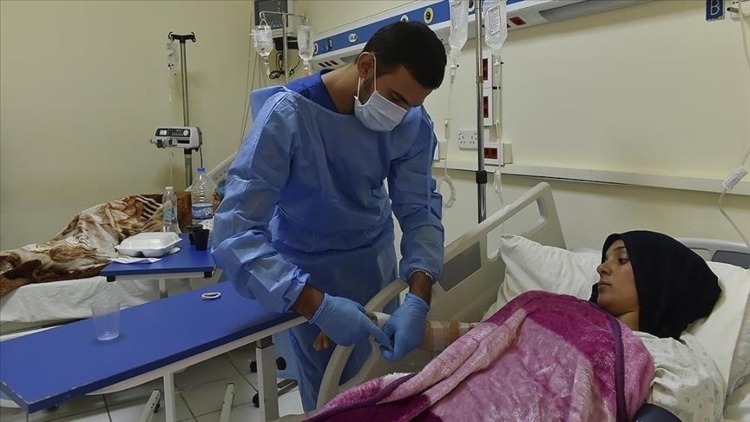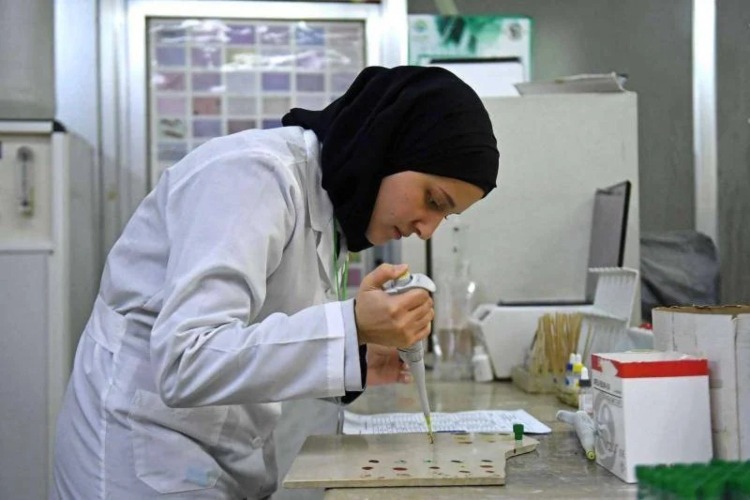Just this Saturday, Lebanon’s Ministry of Public Health took a big step toward combating the cholera outbreak by launching a full-fledged vaccination campaign. They began the campaign by vaccinating residents of the Northern parts of Lebanon with the aim of reaching 70% of the population over the next 3 weeks.
“The arrival of these vaccines in the country is timely and thanks to our collective efforts with the Ministry of Public Health of Lebanon, UN agencies and our partners on the ground.”
– Dr. Abdinasir Abubakar (WHO representative in Lebanon) Via Arab News
So far, the city has procured 600,000 doses of the vaccine from the WHO, and starting from Saturday, the campaign aims to administer 200,000 doses every week, mainly targeting refugees and host communities that are above the age of one. The WHO is also assisting the Ministry of Public Health with the second phase of the campaign by preparing a shipment of two million doses of the oral cholera vaccine.

This full-fledged approach comes at a time when the country’s number of cases continues to peak with more than 2,500 cholera cases confirmed since Nov. 5 and the number continues to rise. The bacterial disease is one that is spreading quite rapidly especially with it being recently introduced to the country in Oct. 2022.
The Start of the Outbreak
Just last month on Oct. 5, Lebanon saw the first traces of this outbreak when the first two cases were announced, a Syrian refugee and a Lebanese woman living in Akkar. That particular area has several border crossings with Syria which already saw almost 35,569 suspected cases of cholera since Nov. 9. Even in Lebanon, the majority of the cases were among Syrian refugees.
Since its arrival, the infections have only spread and even reached Lebanon’s capital of Beirut as well as the city of Tyre, all the way in the South of Lebanon. This is not the first time that Lebanon was hit by a cholera outbreak. Back in 1993, the country saw its first cholera case when a Syrian man living in Bebnine contracted the bacteria through contaminated water.
How It Spread
Knowing that cholera is generally contracted from contaminated food or water, similar to the 1993 outbreak, many attribute the biggest cause of the infection to the deteriorating quality of Lebanon’s waters. The country is currently undergoing an economic crisis that has been ongoing for three years now and as a result, Lebanon struggles with poor sanitation and contaminated water. Rolling power cuts have resulted in many water pumping stations not operating for long periods of time and because of that, a lot of the water ends up contaminated.
“The water that remains in the pipelines becomes polluted after a while and it is important to supply water treatment plants with sufficient power in order to secure clean water.”
– Health Minister Firass Abiad Via Arab News
Preventive Solutions Beyond Vaccine
The rolling out of vaccinations will help deter the effect of the infection but when it comes to preventive solutions, other measures have to be taken by the country to lower and eventually end the spread of the cholera infection.
As contaminated water remains one of the biggest causes of the cholera spread, Abiad mentioned that the solution rests in procuring a sufficient quantity of chlorine and distributing it throughout Lebanon in order to purify and clean the water. Until that solution is applied, the country will continue its goal of ensuring that most of the population receives the vaccine to deter the effects of bacterial infection.



